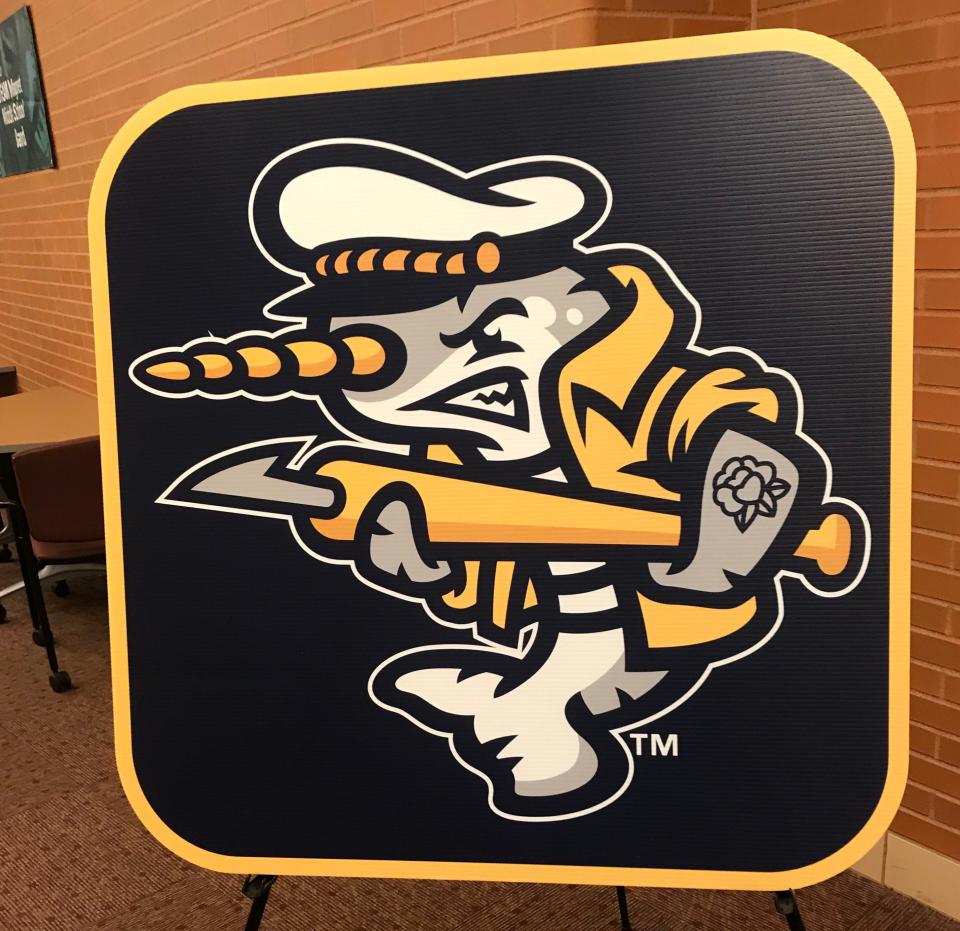'We hope to gain back what we lost': Sea Unicorns at the center of Supreme Court case
- Oops!Something went wrong.Please try again later.
In an ongoing saga between minor league and major league baseball teams, the issue may reach the U.S. Supreme Court.
In an amicus curiae brief filed Oct. 23 with the U.S. Supreme Court by Connecticut Attorney General William Tong and members of his staff in regards to Tri-City Valleycats, Inc. and Oneonta Athletic Corporation vs. The Office of the Commissioner of Baseball, the document decries “the mistaken antitrust exemption for the business of baseball” and implores the court to end the exemption.
Other states have joined in Connecticut’s push for the Supreme Court to consider ending the exemption, including Pennsylvania and New York, according to their respective Attorney General websites.
This legal action was motivated by Major League Baseball’s 2020 decision in reducing the number of Minor League Teams from 160 to 120, impacting “the economic wellbeing of teams and communities in twenty-three states across the country,” the brief states.
This has meant for the Norwich Sea Unicorns, owned by Oneonta Athletic Corporation, an inability to find competitive talent, and fewer people attending games, which leads to a smaller economic impact on the community, the brief states, citing local media including The Bulletin.

Minor League Teams and summer collegiate leagues are important for communities because they are “the grassroots of baseball,” giving an opportunity for families to see quality baseball for an affordable price, which helps with the health of the game in the future, Sea Unicorns General Manager Lee Walter, Jr. said.
“Where do kids watch baseball and become fans?” he said. “That’s what the minor leagues, and summer collegiate leagues, are all about.”
The Sea Unicorns are still persevering, starting to promote their 2024 season by marking 30 years of baseball at Dodd Stadium, with each home game celebrating a different year of the stadium’s history, an announcement from the team states.
The call for ending major league baseball’s exemption is nothing new. Bipartisan legislation to end baseball’s anti-trust exemption was introduced in response to the downsizing plan in Feb. 2020, The Bulletin reported.
Objections to MLB's handling of Minor League team reduction
The brief lays out three objections to Major League Baseball’s handling of the Minor League team reduction.
One is that the federal government can’t pre-empt state anti-trust enforcement unless there is an “unmistakably clear congressional command.” The brief sites historic uses of states pursuing anti-trust action, stating that 21 states had anti-trust laws before the Sherman Anti-Trust Act became law in 1890. The federal canon insists that Congress needs to be clear about altering the balance of power between federal and state governments, and needs to respect “states’ historic police powers,” the brief states.
Prior rulings by the Supreme Court gave the MLB its exemption from anti-trust laws except for player employment. The exemption has also been “reluctantly” ruled to protect the MLB against state anti-trust enforcement, meaning it’s the only professional sport in the country “immunized from federal and state antitrust scrutiny,” the brief states.
The second argument is that Congress has never overridden state historic anti-trust powers toward baseball. States and the federal government have generally enjoyed a cooperative relationship on anti-trust matters, that the Sherman Act is not meant to restrain states, and that the silence of Congress on matters, including the baseball exemption, should not be mistaken for consent, the brief states.
The third argument is that the courts imposed the pre-emption by the Flood v. Kuhn (1972) ruling. The brief argues that states have been able to enforce their own anti-trust laws against national businesses operating in the state. The Flood ruling is also the only case of the court where federal anti-trust law displaces state anti-trust law. However, lower courts have continued their holdings aligned with the Flood ruling, the brief states.
Goal is to gain back what was lost
While the ownership group is in charge of handling the legal interests of the team, Walter hopes the outcome is fair to the Sea Unicorns and other teams that lost their affiliated status.
“We hope to gain back what we lost,” he said.
This article originally appeared on The Bulletin: Connecticut, other states urge SCOTUS to end MLB's antitrust exemption

